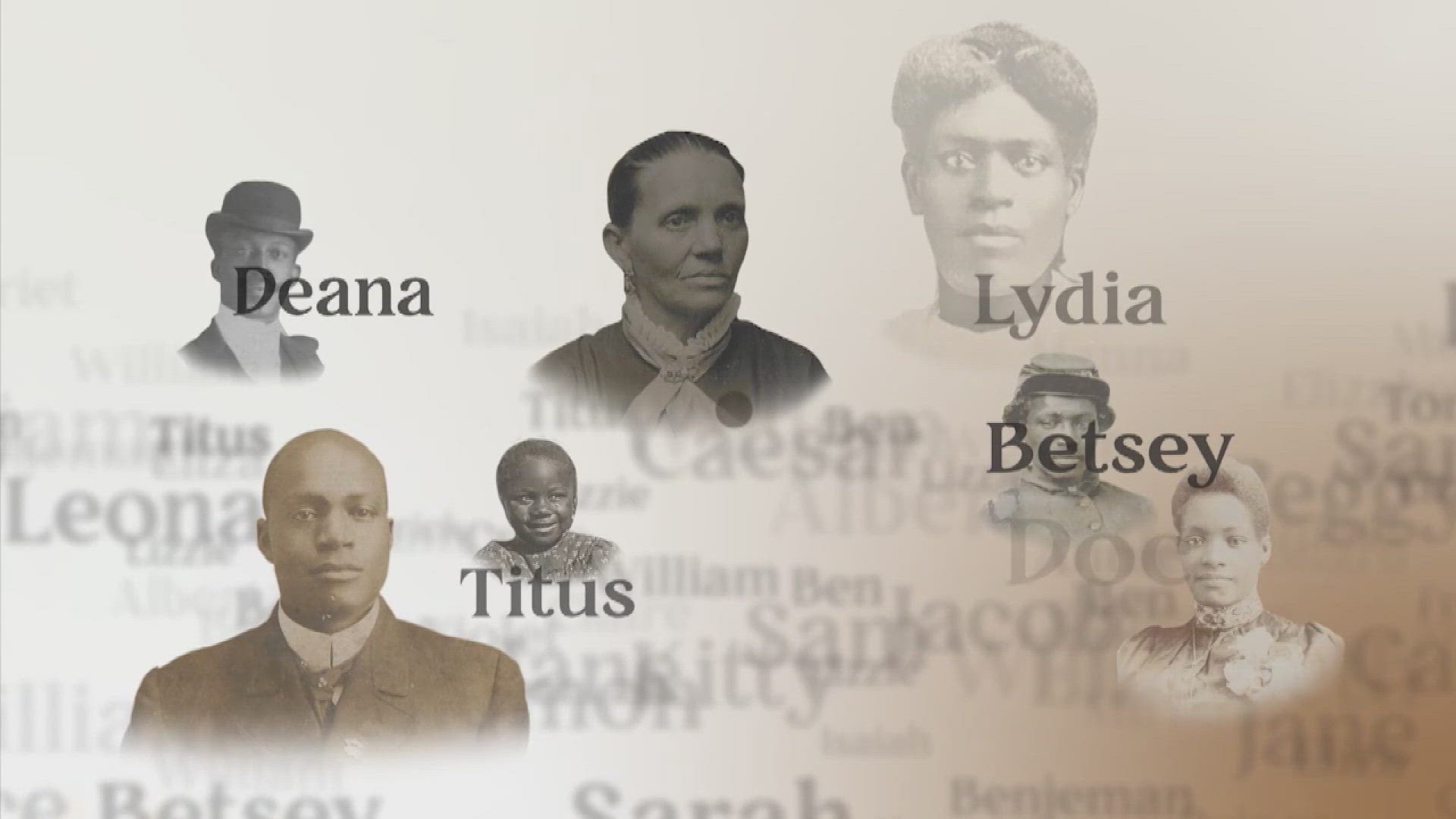NEW ORLEANS — It is estimated that more than 10 million men and women were enslaved in America during the slave trade. In Louisiana, the enslaved population grew to more than 331,000 in 1860.
Today, a national group is working to identify their names and create a free and searchable virtual database.
“I feel blessed to be called to do this,” said Gaynell Brady, a historian and educator working through the Louisiana Chapter of the African American Historical and Genealogical Society, AAHGS, to research the names.
Since 2007, Brady has been researching her own family tree, which led her to create an interactive business called ‘Our Mammy’s,’ where she shares her family's story through dress and artifacts.
“I saw all of these amazing stories about all of these African American men and women in my family who did incredible things,” said Brady.
When we sat down with Brady, she was dressed in what she said her Great-Grandmother Florence Jefferson would have worn.
“It’s not easy,” she said. “Today, I’m dressed like a woman in the early 1900s, and sometimes I’m portraying one of my ancestors who was enslaved, so that brings about a lot of feelings, a lot of questions. And that’s what I wanted.”
Brady discovered her family journey began in Clinton, Louisiana and eventually made their way to New Orleans.
“They were part of the Bakers’ Union’s and they helped to do a school. It was the small wins for me that made a big difference,” she said.
The data Brady is collecting about her family will eventually be submitted to the 10 Million Names project.
“The purpose is to recover the names of the estimated 10 million men, women, and children who were enslaved,” said Cynthia Evans, the Director of Research for the project.
Through the help of genealogists from across the country those names will be archived and preserved in a virtual free-to-access database.
“A lot of times, history doesn’t reflect our accomplishments or what we added to America,” said Evans. “I think that gives us a sense of ‘we are less important as a cultural group, and that is simply not true.”
Brady says this research helped her find her own power.
“I didn’t know how strong I was until I looked back at those stories,” she said. “I realized, wow, these women were able to accomplish all of these things in spite of adversity everywhere.”
If you want to learn more about your family tree and connections to the 10 million names, you can check out the resources provided on the project website.
► Get breaking news from your neighborhood delivered directly to you by downloading the new FREE WWL-TV News app now in the IOS App Store or Google Play.

